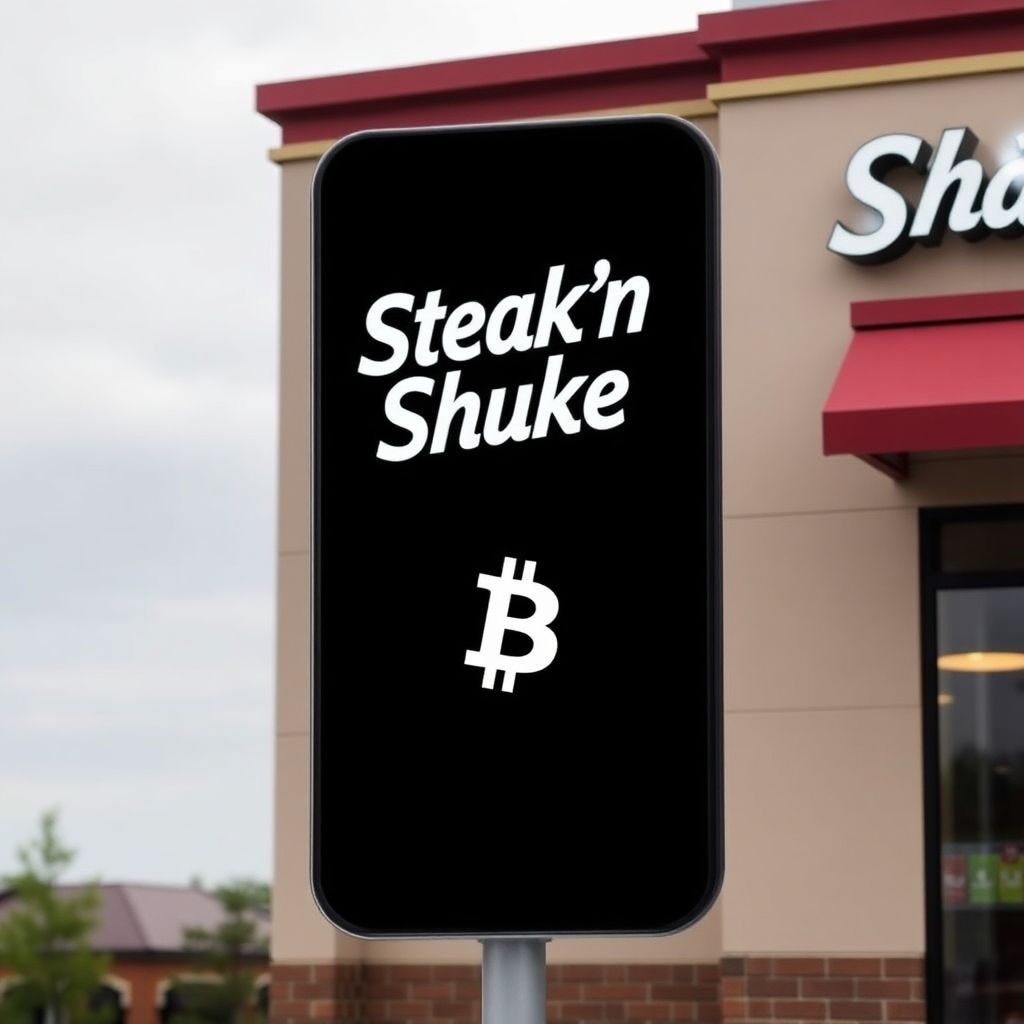Steak ‘n Shake Embraces Bitcoin: Strategic Treasury Move or Marketing Gimmick?
American fast-food chain Steak ‘n Shake has taken a bold step into the world of digital finance by announcing the creation of a dedicated Bitcoin reserve. From now on, all Bitcoin payments made at its locations will be funneled directly into this new treasury initiative. The move is aimed not only at modernizing the company’s payment infrastructure but also at aligning its brand with the growing cryptocurrency movement.
According to a recent company statement shared via social media, every Bitcoin transaction at a Steak ‘n Shake restaurant will contribute to building this reserve. As an added layer of support to the crypto ecosystem, the chain will donate 210 satoshis (approximately $0.23) from every qualifying Bitcoin purchase to OpenSats—a nonprofit organization supporting Bitcoin Core developers and open-source advancement.
While the company has yet to reveal the exact volume of Bitcoin transactions it processes, this new strategy offers some insights into its long-term vision. Steak ‘n Shake began accepting Bitcoin payments across its U.S. locations in May, but like many in the restaurant industry leveraging third-party crypto payment processors, it has remained tight-lipped about specific figures.
Still, existing financial data offers a glimpse into what this initiative might yield. In Q2 2025, Steak ‘n Shake reported $69.3 million in revenue, marking a 12% year-over-year increase. The company attributed a 10.7% quarter-over-quarter growth in same-store sales partly to its embrace of Bitcoin. The trend only intensified in Q3, with a 15% jump in same-store performance, suggesting a growing—though still relatively niche—interest from crypto-savvy customers.
That said, Steak ‘n Shake is unlikely to accumulate BTC at the pace of crypto-native companies like MicroStrategy or mining firms. The customer base paying with Bitcoin remains a small slice of the pie. However, the initiative is about more than just acquiring digital assets; it reflects a broader shift in how brands engage with emerging technologies.
From a financial perspective, accepting Bitcoin offers operational advantages. The chain claims it slashes payment processing fees by around 50% compared to traditional credit card transactions. These savings, combined with increased customer engagement from the crypto community, present a compelling business case.
To further incentivize crypto adoption, Steak ‘n Shake has partnered with Fold, a Bitcoin rewards app. Customers who purchase a “Bitcoin Meal” or a “Bitcoin Steakburger” can receive $5 in BTC by uploading their receipt to the Fold app. This limited-time promotion is available at around 400 locations across the United States, offering a taste of digital currency to everyday consumers.
Fold CEO Will Reeves emphasized the significance of such collaborations, stating that Bitcoin becomes truly mainstream when it integrates seamlessly into daily life. “For many people, this will be the first time they ever own Bitcoin, and it will come from something as ordinary as grabbing a burger,” he said.
Though some skeptics might dismiss the initiative as a marketing stunt or a short-lived trend, others see it as a meaningful step toward broader crypto adoption. By tying Bitcoin to a familiar product in a familiar setting, Steak ‘n Shake may be helping normalize digital currency transactions in the eyes of the general public.
Expanding the Vision: What This Means for the Industry
Steak ‘n Shake’s experiment with Bitcoin could inspire other fast-food chains and retail businesses to follow suit. In a market where differentiation is key, integrating crypto payments and rewards could become a unique selling point, especially among younger, tech-savvy consumers.
Moreover, the donation to OpenSats introduces a philanthropic dimension to the campaign. Rather than merely adopting Bitcoin for profits, the company is contributing to the infrastructure and people who help maintain its decentralized nature. This adds authenticity to the initiative and could resonate with Bitcoin purists who value the grassroots, open-source ethos of the technology.
Potential Risks and Challenges
Despite the promise, challenges remain. Bitcoin’s volatility could impact the value of Steak ‘n Shake’s treasury holdings, especially if prices dip sharply. Additionally, regulatory uncertainty around cryptocurrencies in the U.S. could pose legal or compliance issues down the line.
There’s also the logistical hurdle of educating both staff and customers on how to use Bitcoin effectively, ensuring a smooth transaction process. Without proper training and a seamless user experience, adoption could stagnate.
The Bigger Picture: Bitcoin as More Than an Asset
What’s especially noteworthy about Steak ‘n Shake’s approach is that it treats Bitcoin not just as a speculative investment, but as a functioning currency. This aligns with Bitcoin’s original vision as peer-to-peer electronic cash—a use case that has been overshadowed in recent years by its role as a store of value.
By promoting real-world utility, the chain is playing a small but important role in shifting public perception. If successful, it could encourage other companies to rethink how they integrate digital assets into their business models.
Looking Ahead: Will Others Join the Table?
As the digital asset industry continues to mature, more consumer-facing brands are likely to explore similar strategies. Whether through treasury diversification, loyalty rewards, or charitable donations, Bitcoin offers a range of applications that go beyond simple investment.
For now, Steak ‘n Shake’s Bitcoin reserve may be modest in scale, but it represents a growing trend of traditional companies dipping their toes into a decentralized future. Whether this move turns into a long-term strategy or fades as a fad will depend on consumer response, regulatory developments, and the broader adoption of crypto payments.
What’s clear is that Bitcoin is no longer confined to the realm of tech startups and finance firms. When fast-food restaurants start holding crypto in their treasuries, it’s a sign that digital currencies are becoming a part of everyday life—one burger at a time.

